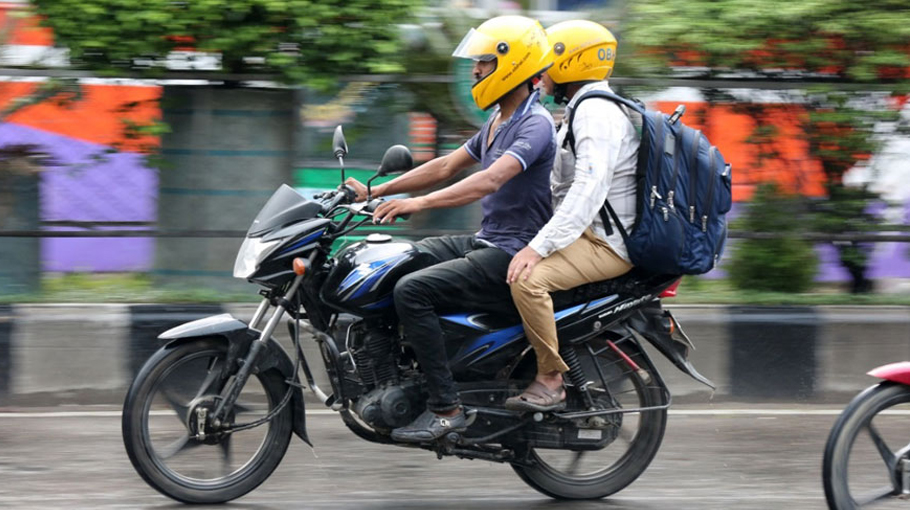Ride-sharing on bikes
A relief turned hassle

Ride-sharing companies started their journey in Bangladesh around 2016 with the hope of bringing relief to the city dwellers by making urban commuting easier in the traffic-congested city of Dhaka.
However, the dream of comfortable travel within systematic management could not be achieved yet.
Issues including charging of extra fare, non-acceptance of digital payment, harassment of passengers and tendencies of offering offline rides of bikers due to high commission rates of these app-based services have brought the promising sector to a standstill in Bangladesh. Salsabil Hayat Anannya, a regular
commuter of app-based bike services told the Bangladesh Post, “After calling through the Uber app, many riders cancel the trip saying that they would not take payment through bKash. Sometimes I prefer offline trips as rides are not available during peak hours and it’s easy to find riders waiting around the street corner.”
Another passenger said that he had to wait for 45 minutes to get a ride and the rider canceled after making him wait for such a long time.
Bikers of ride-sharing app services are claiming that they are leaning towards risky offline trips these days due to the exorbitant commission rates of apps.
Talking to the Bangladesh Post Belal Ahmed Khan, general secretary of Dhaka Ridesharing Drivers’ Union said that 40 percent of the rider’s earning is spent on the maintenance of their bike.
“It becomes hard for them to survive if they have to pay 25 percent commission from the rest of the 60 percent earning. The fares fixed by the global ridesharing giant Uber are not practical in our country considering the traffic situation. It is not possible to conduct trips in a congested city like Dhaka with 25 percent commission.”
He further said that sometimes the riders make mistakes in finding the exact pick-up locations and the customers register a complaint against them through the app.
“These complaints are taken very seriously by them. However, they are not considerate when it comes to the riders. In the case of offline trips, the riders don’t face this kind of trouble. They pick-up passengers from a common place where the riders wait,” he added.
“We do want to provide services through the apps as offline trips are not safe for passengers but the commission rate must be brought down to 10 percent for this,” he said.
Mamunul Islam, a rider of Uber told the Bangladesh Post, “When Uber started their journey in Bangladesh, the commission rate was 15 percent. Over the years they jumped to charge a 25 percent commission making it difficult for us to earn the minimum amount of money.
Fahim Ahmed, chief executive officer of Pathao told the Bangladesh Post, “We have recently decreased our commission on bike rides to 10 percent during peak hours and 15 percent during off-peak hours so that riders can earn the most by operating on the Pathao platform.”
He also said that they reinvest their commission into creating user demand, to ensure that their riders' time is optimally utilized and their earnings potential maximized.




